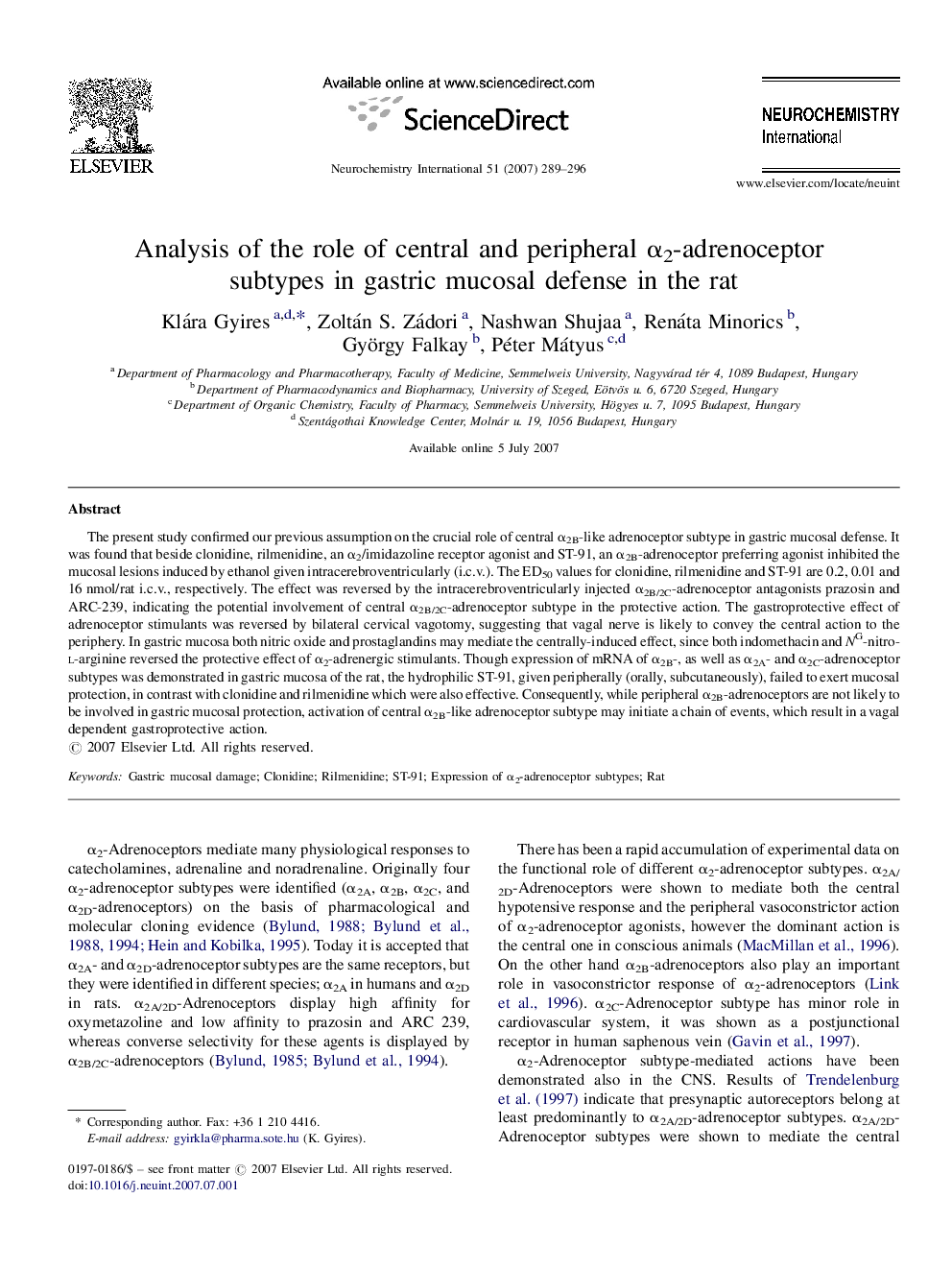| Article ID | Journal | Published Year | Pages | File Type |
|---|---|---|---|---|
| 2201887 | Neurochemistry International | 2007 | 8 Pages |
Abstract
The present study confirmed our previous assumption on the crucial role of central α2B-like adrenoceptor subtype in gastric mucosal defense. It was found that beside clonidine, rilmenidine, an α2/imidazoline receptor agonist and ST-91, an α2B-adrenoceptor preferring agonist inhibited the mucosal lesions induced by ethanol given intracerebroventricularly (i.c.v.). The ED50 values for clonidine, rilmenidine and ST-91 are 0.2, 0.01 and 16 nmol/rat i.c.v., respectively. The effect was reversed by the intracerebroventricularly injected α2B/2C-adrenoceptor antagonists prazosin and ARC-239, indicating the potential involvement of central α2B/2C-adrenoceptor subtype in the protective action. The gastroprotective effect of adrenoceptor stimulants was reversed by bilateral cervical vagotomy, suggesting that vagal nerve is likely to convey the central action to the periphery. In gastric mucosa both nitric oxide and prostaglandins may mediate the centrally-induced effect, since both indomethacin and NG-nitro-l-arginine reversed the protective effect of α2-adrenergic stimulants. Though expression of mRNA of α2B-, as well as α2A- and α2C-adrenoceptor subtypes was demonstrated in gastric mucosa of the rat, the hydrophilic ST-91, given peripherally (orally, subcutaneously), failed to exert mucosal protection, in contrast with clonidine and rilmenidine which were also effective. Consequently, while peripheral α2B-adrenoceptors are not likely to be involved in gastric mucosal protection, activation of central α2B-like adrenoceptor subtype may initiate a chain of events, which result in a vagal dependent gastroprotective action.
Related Topics
Life Sciences
Biochemistry, Genetics and Molecular Biology
Cell Biology
Authors
Klára Gyires, Zoltán S. Zádori, Nashwan Shujaa, Renáta Minorics, György Falkay, Péter Mátyus,
